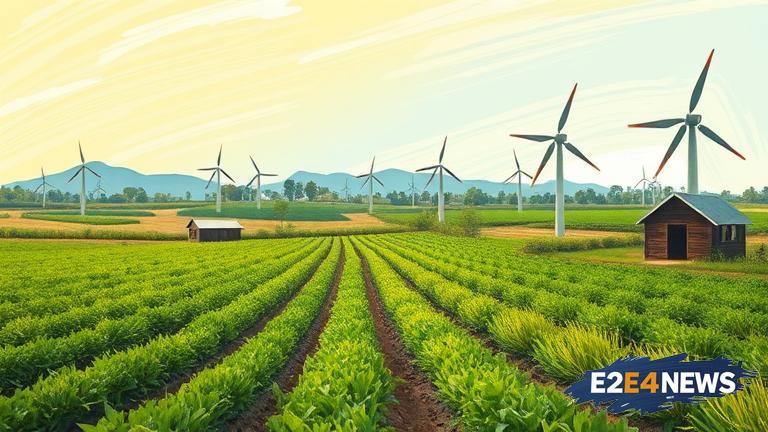The agricultural sector is one of the largest contributors to greenhouse gas emissions, but Australian farmers are taking steps to reduce their environmental impact by adopting renewable energy solutions. With the cost of traditional energy sources on the rise, farmers are looking for alternative ways to power their operations. Renewable energy sources such as solar and wind power are becoming increasingly popular, as they offer a cleaner and more sustainable alternative to fossil fuels. By harnessing the power of the sun and wind, farmers can reduce their reliance on non-renewable energy sources and lower their carbon emissions. This not only helps to mitigate climate change, but also reduces the financial burden of energy costs on farming operations. In addition to the environmental benefits, renewable energy solutions can also increase efficiency and productivity on farms. For example, solar-powered irrigation systems can help to optimize water usage and reduce waste. Similarly, wind-powered pumps can provide a reliable and consistent source of energy for farming operations. The use of renewable energy solutions can also help to improve crop yields and reduce soil erosion. Furthermore, the adoption of renewable energy solutions can help to support the local economy and create jobs in rural areas. As the demand for sustainable and environmentally-friendly food products continues to grow, farmers who adopt renewable energy solutions can gain a competitive advantage in the market. The Australian government has also introduced initiatives to support the adoption of renewable energy solutions in the agricultural sector. These initiatives include grants and subsidies for farmers who invest in renewable energy technologies. Despite the many benefits of renewable energy solutions, there are still some challenges that need to be addressed. For example, the high upfront costs of investing in renewable energy technologies can be a barrier for some farmers. However, as the cost of renewable energy technologies continues to fall, it is likely that more farmers will adopt these solutions in the future. In conclusion, the adoption of renewable energy solutions is a crucial step towards creating a more sustainable and environmentally-friendly agricultural sector. By harnessing the power of renewable energy, farmers can reduce their carbon footprint, increase efficiency and productivity, and support the local economy. As the world continues to grapple with the challenges of climate change, the use of renewable energy solutions in agriculture is likely to play an increasingly important role in the transition to a more sustainable future.
